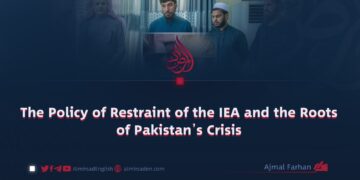Written By: Abdan Safi
The recent abduction of three senior Pakistani officials from Dera Ismail Khan has cast serious doubts on the credibility of the Pakistani military’s assurances of a “secure Pakistan.” Colonel Khalid of the Pakistani Army, Deputy Commissioner Asif, and NADRA officer Fahad Mir were taken by Tehrik-i-Taliban Pakistan (TTP) fighters, underscoring a glaring lapse in security.
This incident challenges the army’s claims of heightened professionalism and situational awareness. It raises pressing questions about how such high-ranking officers could be captured in broad daylight within their own jurisdictions.
Traditionally, Pakistani authorities have pointed fingers at Afghanistan for security breaches within Pakistan. However, the recent abduction of these officials, taken from local streets in Dera Ismail Khan, highlights a different reality: the TTP is not only active but has established a strong presence within Pakistan itself.
Reports suggest that the Pakistani military has initiated talks with the TTP through a jirga of tribal elders to secure the release of the abducted officials. The jirga met with a Taliban commander who set forth a condition for their release: the freeing of TTP prisoners held in Pakistani jails. A list of these prisoners was handed over to the jirga.
This situation raises critical questions about the efficacy of Pakistan’s military and intelligence apparatus. How is it that tribal elders are familiar with the locations of Taliban bases and are negotiating directly with the TTP, while state institutions seem unaware of these bases? Why is the military relying on tribal jirgas to handle such sensitive matters instead of directly intervening?
It is astonishing that Pakistani institutions cannot detect Tehrik-i-Taliban Pakistan (TTP) centers within their own country, yet they can identify and count TTP’s imagined centers and personnel hundreds of kilometers away in Afghanistan. Instead of attributing security failures to external factors, the military and government officials must address their internal shortcomings. Blaming external actors may offer temporary respite but does little to alter the stark reality on the ground.



















































